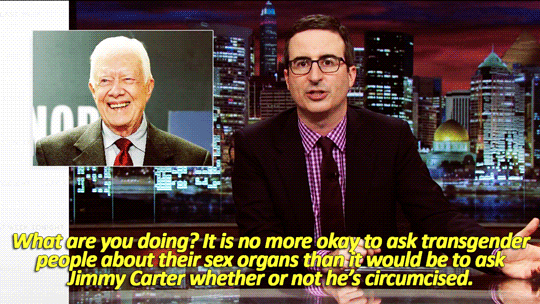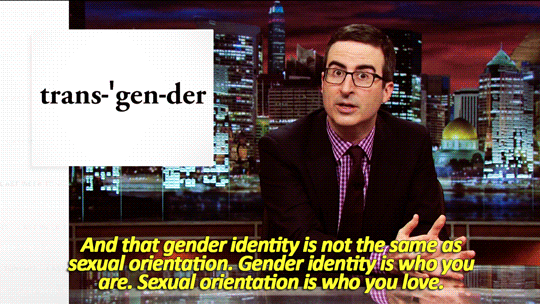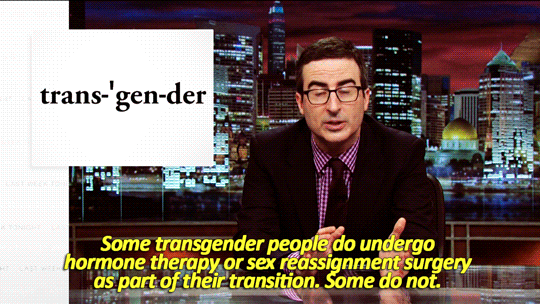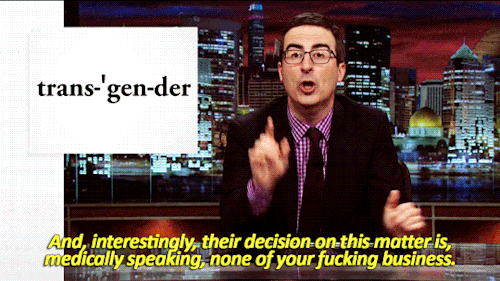My Collection 002:
My collection 002:
Lego TBH/autism creature!
I built this lil' guy during holidays so I gave him ear warmers. He's so precious. ♡


I am aware lego builds are more temporary assets of my collection, but I still want to showcase them.
Maybe I make an archive chategory for things that used to be in my collection but no longer are, such as old lego builds that have been taken apart in the meantime.
More Posts from Loo011 and Others

I was supposed to do a Valentines piece but instead I had the urge to draw Bibi 😔 so here take this adorable obsessive girl from the webtoon “I love Amy”
She did turn adorable tho…
Stop smelling bad🙄
HEY DEVIOUS EXER GUESS WHAT
*sprays febreze* you still smell terrible
STOP DOING THAT‼️‼️‼️‼️
what the skibbidi
That's not very sigma alpha ohio rizzler level 10 gyatt of you
So I have a theory that Jackson's Diary is less of a supernatural and more of a story about two mentally ill people with magic involved and I decided to reread it and keep notes on anything and everything that supports that theory
PS:much easier if you read the chapter after or while reading these notes
Chp4 notes:
•exer continues proving himself as a master maniplutor. Jackson casually get everyone mesmerized with him from his first day, I can see that exer hatred for him is more than just a fight over his ex, it's hard for two maniplutors to be in the same room as it is they were set to crash with or without Brenda. top it off with David-the guy who's literally following after exer commands- taking a liking to Jackson, exer is losing control to Jackson and that's making his nice facade fall
•the way exer was able to tell that Jackson's aunt is Colombian and David saying that Jackson should get used to this because exer can basically read everyone's minds before Jackson looks wary and exer gives a very forced smile. yep Jackson already knows exer is a master maniplutor and exer knows that Jackson knows
•exer looking at Jackson to see what he thinks after Rick and Morty appear, then going to use his powers as the panel is close to Jackson's face, exer is experimenting to see if Jackson can actually see his magic
•it's very weird that Jackson think this whole mess is his doing, especially when it's not his doing but it's caused by exer BECAUSE of him seeing the magic
Nevermore is a gothic tragedy. Part I: Classical and Shakespearean Tragedy
This essay assumes that you've read the first season of Nevermore. If you haven't, you'll be eating spoilers.
First of all, a disclaimer: you won't find the term "Gothic tragedy" in theory books, because I just pulled it out of my sleeve. But it seemed appropriate to put it in those terms because, hey, beyond theoretical structuring, genres are also used as a guide to content, and that's kind of what I want to express with this.
Partly because I've noticed that I've called this comic a tragedy on more than one occasion, and talked at length about Lenore and Annabel as gothic characters, but never bothered to delve into these matters, and with the hiatus until (possibly) October, I think it's time to rectify that situation.
But also because I think there are a lot of things in this story that fall into place if you read it under the logic of those genres.
Originally, this was going to be a single essay, but it turns out it took over 2000 fucking words just to explain why it's a fucking tragedy, so I'm going to split this shit in two because I don't want to burn anyone's eyes out.
Tragedy and Types of Tragedy
This is the ridiculously abridged version because this is a really long story, if you want more information on the subject I highly recommend reading Aristotle's Poetics, Nietzsche's The Birth of Tragedy or watching this OSP video for a more proper introduction. If you're interested in Shakespearean tragedy, The Cambridge Shakespeare is a amazing compilation, and here's the essay that talks specifically about what the hell Shakespearean tragedy is.
Tragedy has been linked to the origins of theater as such, found in the festivals dedicated to Dionysus (if you want to know more about the cult of Dionysus, you can watch this video to start), where poetry contests were held, specifically of dithyrambs: lyric compositions dedicated specifically to Dionysus. This later led to the inclusion of an increasingly sophisticated chorus using masks. This was no longer poetry, but the first expressions of theater as we understand it in modern times, at least for Europe and the countries colonized by Europeans.
Nietzsche also points out that tragedy condenses within itself two opposing impulses represented in the gods Apollo and Dionysus, expressed in the terms "Apollonian" and "Dionysian": order, mathematics and music (understood by the Greeks as science) vs. party, debauchery and chaos. The clash between the beautiful and the grotesque (understanding that the "beautiful" can be disturbing and the "grotesque" can be strangely beautiful). This description is not entirely literal, of course, but it must be kept in mind that in order to have the fundamentals of a tragedy, one must have these two elements: order and chaos. A synchronized waltz between the rigid structures and the rupturing.

Yes, those two are enough.
Step by step, I think it is important to point out what are the transversal elements to tragedy - classical or Shakespearean - that are present in the comic.
The first important concept that appears on this page is Amarthia. The tragic mistake, the first domino that topples the whole stack, is the specific event that sets tragedy in motion, and we spectators of tragedy can only stare in horror at the situation, knowing that everything that follows will go terribly wrong.
At least as far as its protagonists are concerned, Annabel and Lenore's Amarthia has been said but not seen: the dinner party where Annabel will wear pearls, indicating to Lenore that she is in on the charade. From then on, every step they take will bring them closer to the fate we know: the arrival of both of them in Nevermore. This story ends with them both dead.
And if I had to point out the Amarthia of the comic's topicality, I would dare to say that this is it:

And this:

Annabel refuses to explain to Lenore why the plan has to be the way it is, while Lenore agrees to be part of it (the fact that she disagrees with the whole situation is a plus).
The interesting thing about this is that the roles are reversed: before, Annabel sealed the tragic fate of both of them by accepting Lenore's proposal, while in Nevermore, Lenore sealed the tragic fate of both of them by accepting Annabel's plan.
Another important term that comes up here is hybris. While it is true that hybris represents ego, this does not necessarily mean that the hero is self-centered in a personality sense; hybris is the tragic hero's (misguided, of course) belief that they can turn their terrible situation around. And, well…


That ends badly in tragedies. Very, very badly.
At this point, it is necessary to start pointing out the elements of each type of tragedy, because something interesting is happening: within the ancient walls of the purgatory that is Nevermore, a classical tragedy is taking place, while in the past, Annabel and Lenore were the protagonists of a Shakespearean tragedy.
Classical Tragedy
One thing to understand about classical tragedy is that these are stories of humanity versus divinity. The predestined fate that comes upon mortals at the hands of beings superior to them, even if those beings do not appear directly. The external forces superior to the characters do not intervene directly (at least not in most cases), but they put all the pieces in place for the tragic hero to fall headlong into his terrible fate "by their own hand". Yeah, that shit is so unfair.
In Nevermore, fate is represented by these two bastards: The Deans act as the ominous shadow of divinity that sets the rules of this battle royale. For all intents and purposes, this pair of bastards represents the tragic fate of the characters: only one will survive to have a second life. And there is (theoretically) no way to escape.
This is where we start to get into thorny issues. If I had to point out the classical tragedy that Nevermore most resembles, I think I'd get a smile out of Hadestown fans: Orpheo and Eurydice.
Okay, let's review: Orpheo is a highly talented musician who, after losing his beloved, goes to the underworld to find her. Hades and Persephone give him a chance to get her back if he doesn't turn around to see her until they leave the place, he does so at the last second, she returns to the underworld, and Orpheus spends the rest of his life in misery mourning her.
That's the thing, the story of Orpheo and Euridice is a tragedy for the most depressing reason of all: love. What seems like a generous gift from Hades and Persephone is actually a condemnation, because they ask Orpheus to do the one thing he could never do: stop looking at his beloved. In some versions of the story, he can't even hear her as they walk; will she really be her, or has he been tricked? Will she be frightened on this journey and he will not be there to comfort her? What if she has trouble on the road or an accident and Orpheus has left her behind? Orpheus loves Eurydice so much that he cannot save her under these circumstances because he cannot stop watching over her long enough to get her out of here.
Now let's go to Annabel and Lenore, the same thing is happening here, these two idiots love each other. It's probably the only thing they know for sure in this bullshit game. And for Annabel and Lenore, to love is to protect, it's to be the shield that will be there to defend their beloved in the face of adversity, she's been hurt in a terrible way and they will do anything to stop anyone from hurting her again.
But tragic fate, represented by the Deans, has set things in motion for this to quickly go to hell:

For Lenore to understand Annabel's actions, she would have to tell her that's why she's so afraid, why they shouldn't get attached to anyone, why she thinks it's necessary to pretend they don't remember each other. But Lenore can't be okay with Annabel carrying everything alone, because she sees how it hurts her, because Annabel is clearly hurting. She goes to great lengths to confide in Annabel, but she can't come up with a plausible explanation for all this crap either.
For Annabel, becoming a villain and enduring all this pain is slightly less horrible than dragging Lenore into the Deans' psychotic game. But Lenore just loves her too much to let her do that. Lenore could protect her if Annabel were by her side, so why does she keep leaving? She was hurt the first time, why do it to her a second time?


The feeling of not being heard, the frustration that the other just won't listen to her pleas and won't stop what she's doing to allow her to be cared for, runs through both of them because it's the exact same situation, "Why won't you let me do this for you?"
The answer is that Annabel and Lenore are asking the other to do the one thing she could never stop doing: stop trying to protect her. That's why they fight.
This relationship has become a power game that neither can win because they are both exactly the same. A tug-of-war that will only be resolved when something breaks. Hopefully not irreparably.
And speaking of the P-word, let's talk Shakespeare, people.
Shakespearean Tragedy
The good Bard took classical tragedy and brought it back, but changed enough elements of it that it had to be renamed because some of its fundamentals were rewritten. The most notorious of these is that while Shakespeare does not ignore the presence of higher forces or supernatural entities, the fundamental basis of Shakespearean tragedy is not the conflict between humanity and the Fates/Gods.
It is power.
Those who wield power, those who are corrupted by it, and those who crave it. These tragedies speak of moral corruption, the victims of power, and those who sink under the responsibility that power brings.
This is the reason why Shakespeare's tragic heroes belong to the nobility, come from opulent families, or hold important positions. In this case, we have as protagonists two women who were born in a cradle of gold: Lenore apparently comes from a family of old money, and while we do not know if Annabel also comes from a family of old money, we do know that there is no shortage of coins around here.
But status cannot protect Shakespeare's protagonists from the society in which they live, whose agency is sometimes literally represented by people with power. This puts them in a situation from which they cannot escape and which screws them from the start (in other cases the Shakespearean protagonist is the figure of power and seals his own fate). Here, the odds are stacked against them from the start because they are women and, as if that were not enough, lesbians.
I think it's no surprise to anyone that the Shakespearean tragedy most similar to Nevermore is Romeo and Juliet.
Let's review: Romeo and Juliet are two young people who meet at a party and fall madly in love. Their families hate each other, so they cannot be together. The two secretly marry, but after an argument Romeo kills a man and is banished, despite a plan hatched by a priest friend so they can run away together, things go terribly wrong and they both end up committing suicide.
This follows a similar logic to Orpheus and Eurydice: the tragedy here is that these two are in love. But where classical tragedy says, "They love each other so much they can't save themselves," Romeo and Juliet, like Annabel and Lenore, works with two layers of conflict.
The first is the social and political. These young people's families hate each other, so they can't be together. In the same way, Annabel and Lenore can't be together because they're both women.
This is also a reference to one of the central themes of Romeo and Juliet: the clash between tradition and modernity. I think if you squint hard enough, you can see the relationship between these two as Victorian conservatism and homophobia screwing up their lives in the same way that tradition screws up Romeo and Juliet's.
The other layer of the problem is the one that has to do with love: Romeo and Juliet love each other so much that they cannot live without each other. This is what drives them both to suicide, even when they are given the opportunity to continue their lives separately. They love each other so much that they cannot live without each other. Just as Annabel and Lenore desperately want to be together, this is what starts the engine of tragedy when circumstances prevent them from doing so.
Another thing it takes from Romeo and Juliet is the role of the parents as a representation of the power that oppresses the characters. In Romeo and Juliet, the Montague and Capulet lords pull the strings of their children's lives, and it is their resentment that creates the barrier between the lovers. In the case of Nevermore, Ira and Thaddeus are the personal jailers of their respective daughters: Ira wants to get Annabel into an arranged marriage by hook or by crook, and Thaddeus first gets Lenore a fiancé and then keeps her locked up in the fucking attic.
Finally, a tragedy that can be read as a reference to Nevermore, though more subtly, is Macbeth.
The plot is simple: a trio of witches tell Duke Macbeth that he and his descendants will one day be kings. This leads him to murder his cousin, King Duncan, and everything goes downhill from there, because Duncan's murder didn't even amuse the prince.
Yes, at first glance it doesn't seem to make much sense, but that's because it's referring to a specific moment. Specifically, the most discussed and controversial scene in the play: the dialog where Lady Macbeth and Macbeth discuss killing Duncan.
This scene has kept the Bard's fans arguing for centuries: is she manipulating her husband so that she can be queen, or is she just verbalizing Macbeth's wishes that he be allowed to commit the crime, and saying that she will support him in it? Impossible to know unless someone gets a working Ouija board.
This is the same logic that follows the flashback scene where Lenore talks to Annabel about the plan. The important thing here is that the comic decides that the answer is: it depends on who you ask.

Given Annabel's attitude toward Lenore, we can interpret that she does not think she was manipulated or anything. Lenore is not a devious woman who put things in her head, it was her knight in shining armor who came to save her from a marriage she didn't want. Yes, she may have had her doubts, but she definitely liked her chances, enough to accept them.

On the other hand, what this tells me is that Lenore thinks the opposite: that she convinced Annabel to be part of this hoax that ended with both of them dead. A crazy woman who dragged the only person she cared about into a dangerous game that cost them their lives, she considers herself as guilty as the perpetrating hand of the crime.
Conclusion
I think the first time I decided to do a review under this particular lens was when I started to notice where Annabel and Lenore's arcs seemed to be going.
On the one hand, given how things are going, it seems that Lenore has to start taking off the blindfold to realize that things aren't as simple as she thinks, and stop letting others make the hard decisions for her because it hurts everyone.
On Annabel's side, you have a character arc that seems to be aimed at being honest with other people, not letting her fears stop her from making risky decisions, and not dealing with all the bullshit herself.
If what I just said leaves a bad taste in your mouth, that's normal. Because it's fucking unfair.
That Lenore should be the one to stand firm - not out of guilt, but out of responsibility - for her actions feels like shit after everything the poor girl has been through. The same thing happens on Annabel's side, that she has to give in to a situation where it makes so much sense for her to shut down, where it makes sense, even without her background, for her to behave that way.
But that sense of injustice is one of the foundations of tragedies. The feeling that, in her situation, it is practically impossible to think that anything different could be done is the basis of catharsis: the pity felt for the character, the fear generated by identifying with their terrible situation.
The expiation of these emotions, which are produced in the spectator by the fall of the tragic hero.
Now, it is interesting to ask how the fall of Annabel and Lenore will be. The simple answer from a tragic point of view is death, a thing we know has already happened once, why not a second time? After all, that's what awaits tragic heroes. Unless you're Medea.
It's impossible to know how the comic will develop, but it seems to me that this is as far as the tragedy goes. For the next part, I want to talk about gothic novels, female vampires, the female writers of the period, and the last gothic. Believe me, buddies, there is no more obsessive romantic bond than that between a Poe protagonist and their dead bride.
David: I think the guy is nuts
Jackson: YES I AM! Thanks for noticing David!:D


Say whatever you want but Lucy-furr will always be jaxer's child

Montresor (and Willtresor) are the Bad Ending of White Raven III: now it is personal
Well, after realizing that I have like (check the list) two unfinished "sagas" of essays, I remembered that I had this 80% done and I told myself that maybe it was an excellent time to get on with this shit to keep kicking the archetypes and gothic tragedy essay under the rug
When I thought about this ("hey, if Montresor has so many similarities to Lenore and Annabel, where does that leave Will?"), my first thought was that the parallel would be this:


We have a charming blondie charlatan who arrives just in time to offer their "friendship" (wink, wink) to a poor individual who couldn't be hungrier for affection and validation. A deal sealed with a handshake, otherwise.
Here the parallel between Will and Lenore is drawn in that they are both rather reactive people: they don't take the initiative to do things, they react to things that happen around them. For example, Will wasn't the one who came up with the idea of putting Duke behind the wall, just as Lenore didn't come up with this whole fake rivalry scheme.
But neither of them refuse to participate, either because they think they can get away with it, or because they don't stop to think about the consequences of the things they get into. And, in general, they tend to panic when things don't go their way and immediately back off (even when that's not possible).


But this is where the parallel ends, because their personalities and approaches are completely different: Will tends to curl up in a ball and look for excuses not to get hurt, while Lenore is an extremely blunt weapon capable of taking whatever is thrown at her.
So you can imagine the look on my face when, after thinking it over, I realized that the person Will has the most in common with is not Lenore.
It's Annabel.
Because if we had a nickel for every time we saw a character in Nevermore…
Be willing to tolerate physical harm to protect an object of affection whose game has backfired.


Idealizing that object of affection to obsessive levels.


Taking harmful attitudes out of a desire to be accommodating because they think that's what that person expects of them.


And putting up with it even though it is tearing them apart inside...


We would have two nickels. It's not much, but it's interesting that it happened twice.
With that, I could up the ante and point out something else that Annabel and Will have in common: they're both invisible people. Will is someone no one gives a second glance to, while Annabel is seen more as an object or an idea than an individual (a pretty accessory in life, an unbeatable queen in death). They don't really matter to anyone.
Except for one person. One person for whom they are willing to give absolutely everything. Their lives, their physical integrity, their identity.
This creates an enormous fear of being abandoned by that person, when they have given them such an important part of their self-construction, who are they without them?
Then there is the particular way in which they both understand relationships. Annabel has openly stated that she sees social relationships as commercial exchanges. It is not known whether Will has a similar view, but in practice he behaves much like Annabel in this respect: they see themselves as important to the extent that they can be useful to their particular person. Tools to be used, rather than individuals deserving some form of appreciation, care, or even affection for simply being them.
Under that premise, it's to be expected that Montresor or Lenore will discard them the moment something more useful or better comes along, because that's what you do with tools. If some of them end up in the trash, it's because Annabel or Will have failed to remain useful, and they need to make amends for their mistakes in order to be considered worthy of a second look.
Which makes it tremendously ironic that Lenore says this to Will…

When in the midst of a panic attack, this is one of the first concerns Annabel has to express.

At this point, the difference between the two situations jumps out: Lenore cares about Annabel. Where Montresor is more than happy to use Will's complexes to keep him chained to him, Lenore is far from being comfortable with all that crap. Again, what draws the lines in the end is that there are people who have their hearts in the right place and there are people who don't.
But I think there's one thing that's a little darker: please watch Montresor's face when he realizes that the person he's choking is Will.


And watch his complete lack of reaction when Lenore pulls it out of his face.

I think the fucked up thing about the situation is that Montresor seems to care about Will. At least enough to feel a certain amount of remorse. But in a world where there are winners and losers (a perspective he shares with Annabel), where it doesn't pay to care about the losers if you're a winner, Montresor doesn't have the resources to treat Will any better. Even if he wanted to, he's too deep into toxic patterns of behavior to show him any degree of kindness, because the only way this man is able to relate is through abuse, control, and manipulation.
This is extremely fucked up when you consider that this is the fuzzy line that separates Lenore and Montresor in the roles they have within the relationship with Annabel and Will.
At the end of the day, the Willtresor is a dark reflection of the White Raven, because that's the consequence of instrumentalizing the relationship in this way: you have one party who benefits from what the other is willing to do for them -and no matter how much they care, it still relegates them to the role of tools- and another person desperately picking up crumbs of validation because they don't think they deserve any better.
-
 3nvy-603 liked this · 4 weeks ago
3nvy-603 liked this · 4 weeks ago -
 qusok liked this · 4 weeks ago
qusok liked this · 4 weeks ago -
 apollo-isnt-here liked this · 4 weeks ago
apollo-isnt-here liked this · 4 weeks ago -
 zerosocialskillz liked this · 1 month ago
zerosocialskillz liked this · 1 month ago -
 takeshitakyuuto liked this · 1 month ago
takeshitakyuuto liked this · 1 month ago -
 fandomsfan1 reblogged this · 1 month ago
fandomsfan1 reblogged this · 1 month ago -
 ashestodust2468 liked this · 1 month ago
ashestodust2468 liked this · 1 month ago -
 i-am-grell reblogged this · 1 month ago
i-am-grell reblogged this · 1 month ago -
 sourestcandy reblogged this · 1 month ago
sourestcandy reblogged this · 1 month ago -
 sourestcandy liked this · 1 month ago
sourestcandy liked this · 1 month ago -
 ninja-grace liked this · 1 month ago
ninja-grace liked this · 1 month ago -
 pansunset liked this · 1 month ago
pansunset liked this · 1 month ago -
 cloudedcari reblogged this · 1 month ago
cloudedcari reblogged this · 1 month ago -
 cloudedcari liked this · 1 month ago
cloudedcari liked this · 1 month ago -
 thewizardslime liked this · 1 month ago
thewizardslime liked this · 1 month ago -
 willowanomaly liked this · 1 month ago
willowanomaly liked this · 1 month ago -
 ladyinsertnamehere reblogged this · 1 month ago
ladyinsertnamehere reblogged this · 1 month ago -
 ladyinsertnamehere liked this · 1 month ago
ladyinsertnamehere liked this · 1 month ago -
 birdmanstein reblogged this · 1 month ago
birdmanstein reblogged this · 1 month ago -
 birdmanstein liked this · 1 month ago
birdmanstein liked this · 1 month ago -
 seleeeeene reblogged this · 1 month ago
seleeeeene reblogged this · 1 month ago -
 korohpu liked this · 1 month ago
korohpu liked this · 1 month ago -
 afriendofblahaj reblogged this · 1 month ago
afriendofblahaj reblogged this · 1 month ago -
 afriendofblahaj liked this · 1 month ago
afriendofblahaj liked this · 1 month ago -
 nyxia-rose liked this · 1 month ago
nyxia-rose liked this · 1 month ago -
 astrosstarfall liked this · 1 month ago
astrosstarfall liked this · 1 month ago -
 themyceleumsystem liked this · 1 month ago
themyceleumsystem liked this · 1 month ago -
 drowsyinsomnia liked this · 1 month ago
drowsyinsomnia liked this · 1 month ago -
 korblynx liked this · 1 month ago
korblynx liked this · 1 month ago -
 gmaenerd reblogged this · 1 month ago
gmaenerd reblogged this · 1 month ago -
 bilbobagginsfeet liked this · 1 month ago
bilbobagginsfeet liked this · 1 month ago -
 nephritedqueen liked this · 1 month ago
nephritedqueen liked this · 1 month ago -
 mizukiakiyamacoded liked this · 1 month ago
mizukiakiyamacoded liked this · 1 month ago -
 kestrel-wish liked this · 1 month ago
kestrel-wish liked this · 1 month ago -
 avixthecat liked this · 1 month ago
avixthecat liked this · 1 month ago -
 jota-or-something liked this · 1 month ago
jota-or-something liked this · 1 month ago -
 thelovesonglovesong reblogged this · 1 month ago
thelovesonglovesong reblogged this · 1 month ago -
 ihatecomingupwnames liked this · 1 month ago
ihatecomingupwnames liked this · 1 month ago -
 ablogbyacryptid reblogged this · 1 month ago
ablogbyacryptid reblogged this · 1 month ago -
 herequeerstilllivinginfear liked this · 1 month ago
herequeerstilllivinginfear liked this · 1 month ago -
 onomatopomnia liked this · 1 month ago
onomatopomnia liked this · 1 month ago -
 saltandanxietychips reblogged this · 1 month ago
saltandanxietychips reblogged this · 1 month ago -
 saltandanxietychips liked this · 1 month ago
saltandanxietychips liked this · 1 month ago -
 hallowsy liked this · 1 month ago
hallowsy liked this · 1 month ago -
 cufufle liked this · 1 month ago
cufufle liked this · 1 month ago -
 nemalex liked this · 1 month ago
nemalex liked this · 1 month ago -
 krispcrossapplesauce reblogged this · 1 month ago
krispcrossapplesauce reblogged this · 1 month ago -
 sedimentfootwrap liked this · 1 month ago
sedimentfootwrap liked this · 1 month ago -
 milk-apologist reblogged this · 1 month ago
milk-apologist reblogged this · 1 month ago










